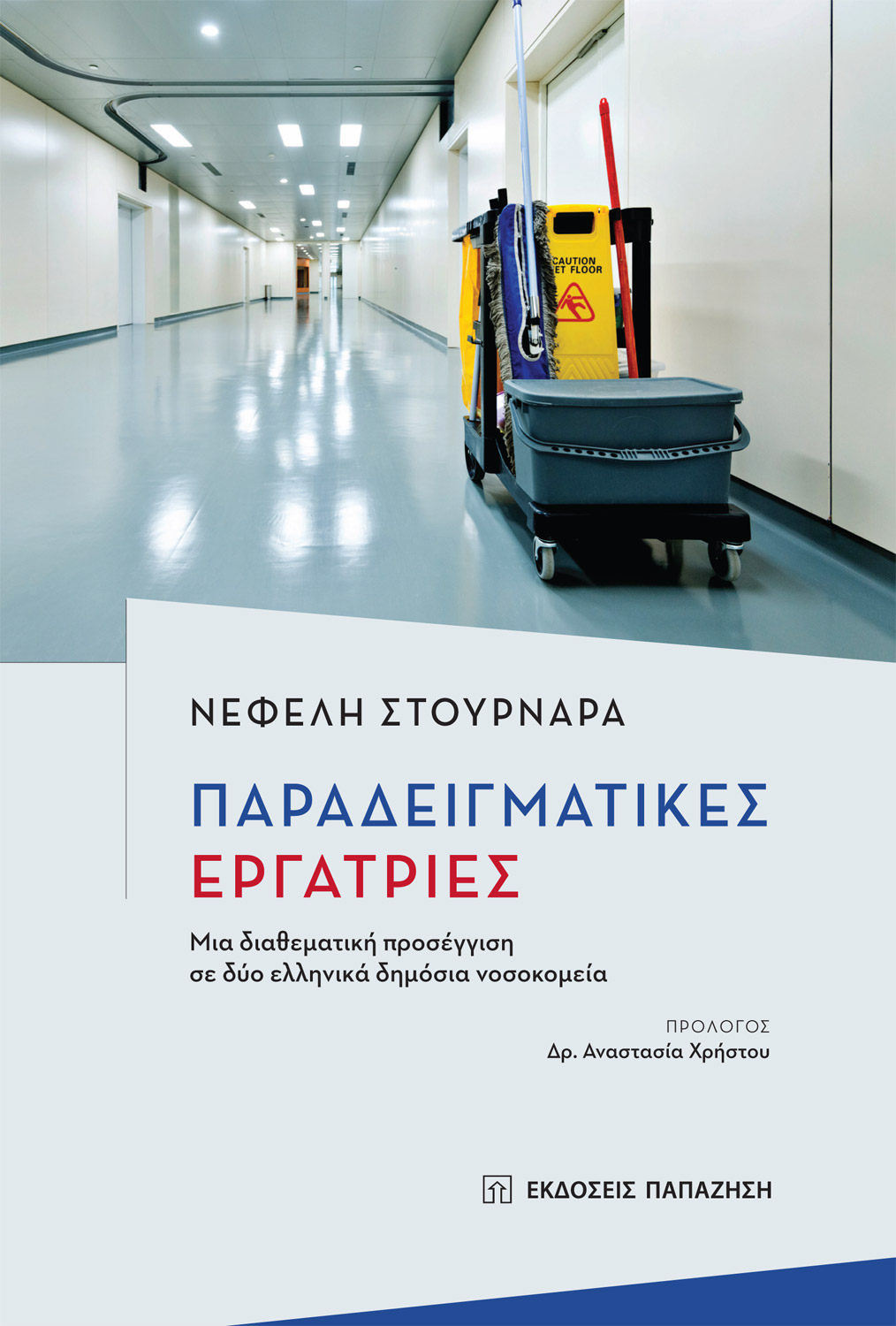
OUR Done Miley arrived from Albania to Greece 16 years ago. For the past eight years, she has worked as a cleaner at the Dromokaiteo Psychiatric Hospital of Attica. Cleans the premises – “I turned everything over there”, says “K”– five days a week. According to him, the kitchen is cleaner, but there are more things. The wards are dirtier, he can often find urine on the floor, but there he comes into contact with the sick. At first he was a little scared, he didn’t know what he was going to face. But she quickly realized that she got the most joy out of her job while cleaning the wards, coming into contact with the patients themselves. “Once they meet you, they will fall in love with you,” Ms. Mile says. They are glad to see her, they know her by name, she is Entella, and often, according to her, they ask her. “Me too,” he emphasizes, “I’m happy.”
Prior to coming to Greece, Mrs. Mile worked for an ironing company. At first, he looked for work in a field familiar to him, but without success. She claims that the same number of compatriots she knows who are in Greece work in the cleaning industry. “My friends, my sisters-in-law are all cleaners, whether in the hospital or at home, everyone who came is doing the same job to get another job, you have to know things that if you didn’t go to school here you don’t know, the housekeeping only wants you to talk, you don’t have to read or write, says “K”.
The side of these women wanted to be considered Nefeli Sturnara through the dissertation “Exemplary Workers”, which came out a few days ago from Papazisi Publications. Ms Sturnara studied Sociology and History at the University of Sussex, received her Masters in Migration and Diaspora Studies from the School of Oriental and African Studies in London and completed her PhD in Sociology in 2020 from Middlesex University. From 2015 to 2017, she dated 24 women from Albania and Northern Epirus who worked as cleaners in two hospitals Athens. In the book, she maintains the anonymity of the women who spoke to her and the anonymity of the two hospitals they worked at.
“There is a sense that the cleaning lady is invisible,” says Nefeli Sturnara, who, with her dissertation “Exemplary Workers,” wanted to draw attention to a group of immigrants who have taken on a very important role.
“I’ve been interested in immigration since high school,” she tells K. Later, when she continued her relevant research, she realized that the immigrant group, especially the immigrant women working in the cleaning industry, had not been studied in Greece. “There was an invisible world,” he says, emphasizing that it only became visible in 2008 due to the assassination attempt on Konstantin Kuneva. “So I say, let’s understand what is finally happening,” he adds, “let’s see what gender, working conditions, ethnicity, social class, age, immigration origin mean in a particular case.”
Speaking about the results of her research, Ms. Sturnara mentions that many of the women she met experienced “deprofessionalization” (dequalification) when they arrived in Greece, and professional employment in a specific field was the only job option. “Over the years, they have become sustainable,” says Ms. Sturnara, and have found meaning in their work. “I create purity through dirt,” she claims to have been told several times. “Insufficient visibility is a very strong element,” adds Ms Sturnara, “there is a feeling that the cleaner is invisible in the hospital,” which, however, she notes, was not the case when in contact with patients. “This is where cleanliness meets care,” he says. Although her research has focused on “Albanians and Albanians of Greek ethnicity,” as she writes in the book, Mr. Sturnara says “K” that in any case he did not meet many Greek cleaners in two hospitals.
Despina Scarmea, who is in charge of cleaning and catering at Dromokaiteo, where she worked for two decades and where she used to work as a bank teller, emphasizes that until recently there were not many Greek women in this area. “Of the 51 people who cleaned in the past, 40 would have been foreigners,” he tells K. “In recent years,” she adds, “I don’t know if it’s necessary for work, but a lot of Greek women come.” As for the working part, she, like Mrs. Mile, emphasizes that their work is recognized. “Outsiders may not understand because they don’t know the circumstances, but insiders do,” he says. “They appreciate it,” emphasizes Ms. Scarmea, “and that is why you are happy to do this for them.”

Source: Kathimerini
Ashley Bailey is a talented author and journalist known for her writing on trending topics. Currently working at 247 news reel, she brings readers fresh perspectives on current issues. With her well-researched and thought-provoking articles, she captures the zeitgeist and stays ahead of the latest trends. Ashley’s writing is a must-read for anyone interested in staying up-to-date with the latest developments.